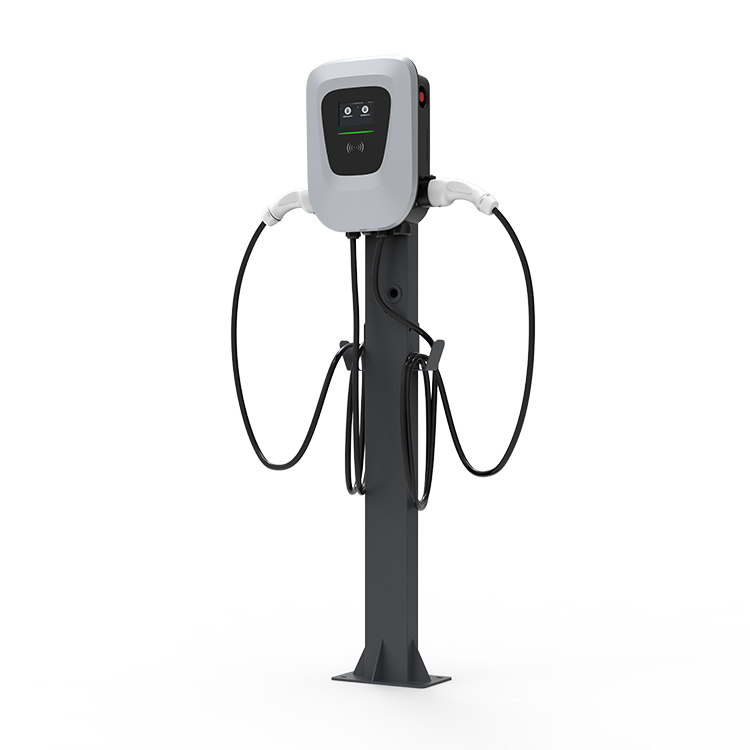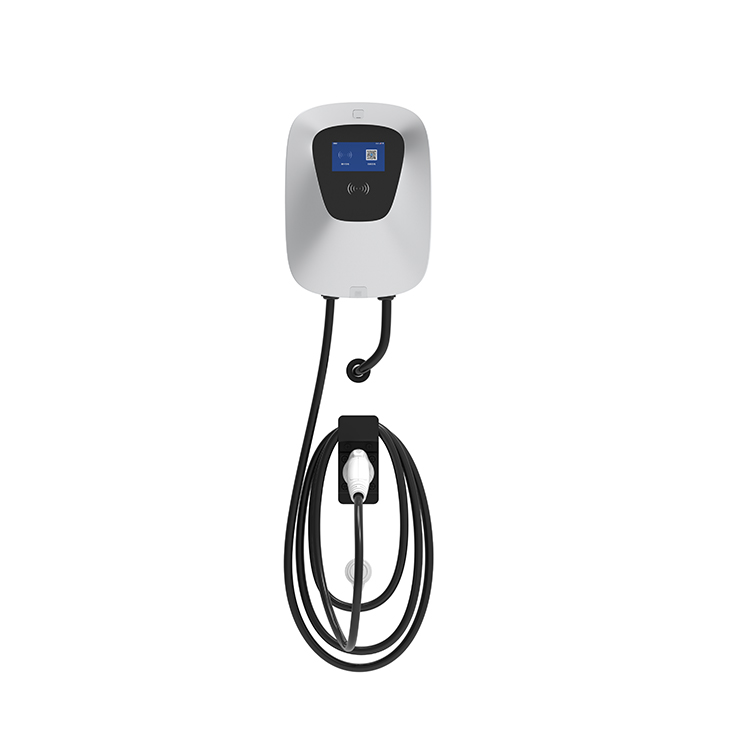
Products
Fast, Reliable, Everywhere

Solutions
Efficient, Innovative EV Charging Solutions.
News
We are committed to the innovation and application of EV charging.
As electric vehicles (EVs) continue to grow in popularity, more owners are exploring the option of installing an EV charger at home.
Specifically, AC EV chargers are becoming a top choice due to their convenience, cost-efficiency, and potential to boost property value.
This article delves into the features and benefits of AC EV chargers, providing you with solid data and facts to help you make an informed decision.

An AC EV charger converts household alternating current (AC) into direct current (DC) suitable for charging an electric vehicle's battery directly.
It is typically installed in a garage or near a parking space for daily convenience. AC EV chargers are generally categorized into Level 1 and Level 2, depending on their charging power.
Installing an AC EV charger at home eliminates the need to rely on public charging stations. After a long day, you can simply park your vehicle in the garage and plug it in, charging overnight and having a full battery by morning.
According to Statista, as of 2023, the global number of public charging stations still falls short of meeting the increasing demand for EVs, especially in residential and rural areas.
Therefore, having a home charger offers not just convenience but also saves you the hassle of searching for a charging station.
A major advantage of a home charger is that your vehicle is always fully charged. Whether for daily commutes or spontaneous long trips, you can ensure your EV is always ready to go.
The U.S. Department of Energy reports that a home charger can increase vehicle usage by nearly 20%, as owners no longer need to worry about battery range.
For fast charging needs, the Pilot x Piwin 22KW Type 2 AC home charger maximizes your EV's charging efficiency. This TÜV-certified charger fully charges your vehicle in just 3 hours, enhancing vehicle efficiency and flexibility, allowing owners to plan trips without the stress of finding a public charging station or waiting to charge.

The cost savings of home charging are significant. The National Renewable Energy Laboratory found that home charging costs are typically 30-50% lower than those at public charging stations.
Moreover, EV owners can choose to charge during off-peak hours (such as nighttime), taking advantage of lower electricity rates to further reduce charging costs.
Charging Cost Comparison:
| Charging Method | Cost ($/kWh) | Charging Cost (60 kWh) | Savings Compared to Public Charging |
| Home Charging (Average Rate) | $0.13 | $7.80 | 57% ($10.20) |
| Home Charging (Off-Peak) | $0.07 | $4.20 | 76% ($13.80) |
| Public Charging Station | $0.30 | $18.00 | N/A |
Data Explanation:
Electricity Rate Differences:
According to the U.S. Energy Information Administration (EIA), the average residential electricity price in the U.S. in 2023 was about $0.13/kWh.
In some areas, utility companies offer off-peak rates as low as $0.07/kWh.
Public Charging Station Costs:
Public charging stations typically charge between $0.20 and $0.50/kWh, depending on location and station type.
Result Analysis:
1.Home Charging Savings: Charging during off-peak hours is 76% cheaper than using public charging stations ($4.20 vs. $18.00).
2.Even at regular home electricity rates, home charging costs are 57% lower than public charging stations ($7.80 vs. $18.00).
These figures clearly show the economic benefits of home charging, especially during off-peak hours.
With a well-planned charging schedule, EV owners can significantly reduce their energy costs, proving that installing an AC EV charger at home is a sound investment.
The initial cost of setting up home charging may include the purchase and installation of the charger. However, in the long run, these costs are typically offset by lower daily electricity costs and the avoidance of high fees at public charging stations.
According to the Electric Vehicle Association, public charging stations generally charge between $0.20 and $0.50 per kilowatt-hour (kWh), while home charging costs range from $0.07 to $0.15 per kWh.
Besides the per-charge cost, home charging can save extra time and money by reducing the need to visit public charging stations. Considering that public charging stations may require waiting, especially during peak hours, home charging helps owners avoid these hassles.
Additionally, the cumulative cost of using public charging stations over time can be substantial, whereas home charging can significantly reduce these long-term costs.
Home charging also allows owners to flexibly adjust charging times to take advantage of lower electricity rates. For example, many utilities offer lower rates at night, giving EV owners an opportunity to save on costs.
According to the U.S. Energy Information Administration(EIA), the average residential electricity price in the U.S. is around $0.13/kWh, while many utilities offer off-peak rates as low as $0.07/kWh, making nighttime charging a cost-effective option.
Installing a home AC EV charger is straightforward but requires meeting specific electrical requirements. A Level 2 charger typically requires a 240V outlet, which may need an upgrade by a licensed electrician.
Additionally, the installation site should be near your vehicle's parking space and have enough room for the equipment.
The Pilot x Piwin home EV charger features a space-saving design, offering optional wall-mounted or pedestal installation, maximizing accessibility while conserving valuable space. Optimized for home use, this charger operates on 220~240V power, providing stable output and charging in 3-5 hours.

High-quality, durable casing materials ensure a long service life. Additionally, the installation is simple, and a portable option is available for those who prefer mobility. This product minimizes space concerns during installation.
Many electric vehicle manufacturers and third-party companies offer charger installation services, ensuring the equipment meets local electrical codes and providing post-installation support.
To ensure the safe and effective use of the charger, we recommend choosing Pilot x Piwin’s professional installation services.
The home AC EV charger installation process takes just a few hours. Once installed, you can immediately start using the charger. Our professional installation team will ensure the process runs smoothly and provide necessary guidance after installation.
In conclusion, installing an AC EV charger at home is a valuable long-term investment. It offers not only convenience and flexibility in charging but also significant economic benefits by reducing long-term charging costs and increasing property value.
In the global energy transition context, choosing to install a home charger is a key step towards sustainability.
With our professional services, you can easily achieve this goal and add a practical and forward-looking asset to your home.
